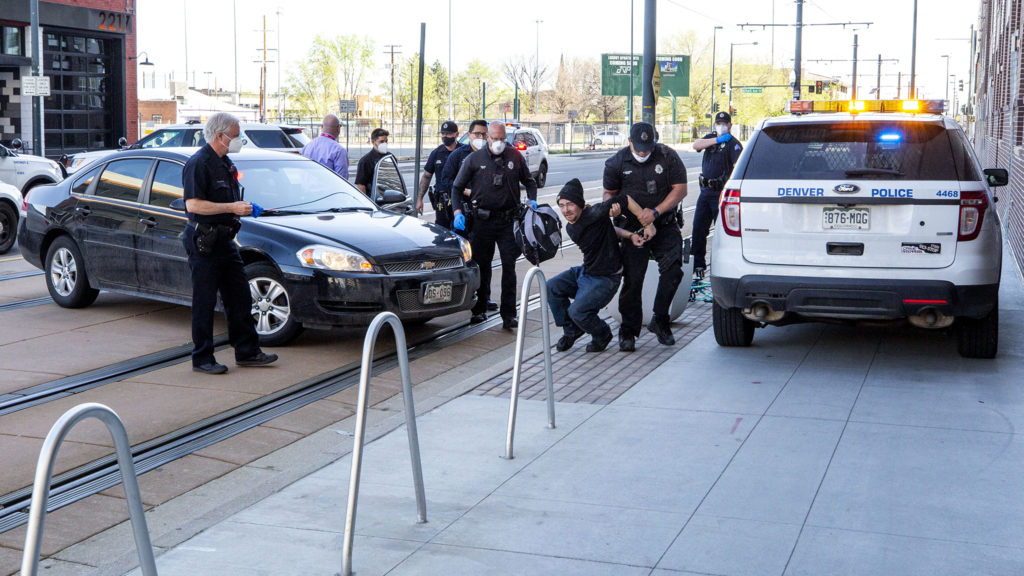
Understanding Your Rights in Colorado: Wrongful Termination Claims and Unlawful Discharge
March 10, 2024Wrongful termination is a distressing experience that affects many employees in Colorado. Whether you’re an at-will employee or have an employment contract, it’s essential to understand your rights and recourse if you’re wrongfully terminated.
What Constitutes Wrongful Termination in Colorado?
Colorado follows the at-will employment doctrine, which means an employer can terminate an employee for any reason, as long as it’s not illegal. However, certain exceptions exist, leading to a claim of wrongful termination.
Understanding At-Will Employment
At-will employment allows employers to terminate employees for any reason, provided it’s not discriminatory or in retaliation for certain protected activities. However, employees can still pursue legal action if they believe the termination violated their rights.
Discrimination and Retaliation
Discrimination based on protected characteristics such as race, gender, religion, or disability is illegal. Similarly, employers cannot retaliate against employees for engaging in protected activities like filing a discrimination complaint or participating in workplace investigations.
Violation of Public Policy
Terminating an employee for reasons that violate public policy, such as refusing to break the law or exercising legal rights, constitutes wrongful termination in Colorado.
Steps to Take When Facing Wrongful Termination
If you believe you’ve been wrongfully terminated, taking the right steps is crucial to protect your rights and seek appropriate remedies.
Filing a Complaint with the Colorado Department of Labor
One of the first steps is to file a complaint with the Colorado Department of Labor and Employment (CDLE) or the Equal Employment Opportunity Commission (EEOC) if the termination involves discrimination. This initiates an investigation into the matter.
Seeking Legal Counsel
Consulting with an experienced employment lawyer is essential to understand your rights, assess the strength of your case, and determine the best course of action. Legal counsel can guide you through the process and represent you in negotiations or court proceedings.
Negotiating Settlements
In some cases, negotiating a settlement with the employer may be an option to resolve the dispute without going to court. An experienced attorney can help you assess settlement offers and negotiate on your behalf to secure fair compensation.
Proving Wrongful Termination
Proving wrongful termination requires substantial evidence and understanding of the legal requirements in Colorado.
Gathering Evidence and Documentation
Collecting documentation related to your employment, performance evaluations, emails, and any evidence of discriminatory treatment or retaliatory actions can support your claim. This evidence is crucial in establishing the circumstances surrounding your termination.
Witness Testimonies and Expert Opinions
Witness testimonies from colleagues who observed the events leading to your termination can provide critical support for your case. Additionally, expert opinions from professionals in relevant fields can help establish the wrongful nature of your termination.
Understanding Statute of Limitations
It’s important to be aware of the statute of limitations for filing a wrongful termination claim in Colorado. Missing the deadline can bar you from seeking legal recourse, so understanding and adhering to the timelines is essential.
Potential Damages in Wrongful Termination Cases
Successful wrongful termination claims can lead to various forms of compensation and remedies.
Lost Wages and Back Pay
If the termination caused financial loss, you may be entitled to recover lost wages and back pay for the period of unemployment resulting from the wrongful termination.
Emotional Distress and Punitive Damages
Emotional distress damages are available when the wrongful termination causes significant emotional suffering. In cases of egregious conduct by the employer, punitive damages may also be awarded to punish and deter similar behavior in the future.
Reinstatement and Other Remedies
Reinstatement to your former position or an equivalent role, along with other injunctive relief, may be granted if the court finds in your favor. Other remedies can include policy changes within the organization to prevent future wrongful terminations.
Filing a Wrongful Termination Lawsuit in Colorado
If efforts to resolve the matter out of court prove unsuccessful, filing a lawsuit may be the next step to seek justice.
Completing EEOC or CCRD Charge Requirements
Prior to filing a lawsuit, it’s necessary to complete the administrative requirements, such as obtaining a right-to-sue letter from the EEOC or the Colorado Civil Rights Division (CCRD) after the investigation process is completed.
Timelines and Legal Procedures
Understanding the legal procedures and adhering to statutory timelines for filing a lawsuit is essential. An experienced attorney will guide you through the complex legal process and ensure all requirements are met.
Legal Representation and Court Proceedings
Engaging a qualified attorney to represent you in court is crucial for presenting your case effectively. The attorney will handle the legal proceedings and advocate on your behalf to secure the best possible outcome in the lawsuit.
Understanding your rights in the event of wrongful termination is critical to protecting your livelihood and seeking justice in Colorado. By familiarizing yourself with the legal standards and seeking appropriate assistance, you can navigate the complexities of wrongful termination claims and pursue the remedies you deserve.
What is wrongful termination?
A: Wrongful termination refers to the unlawful firing of an employee, typically in violation of state or federal laws, or in breach of employment agreements or public policy.
What constitutes a wrongful termination claim in Colorado?
In Colorado, a wrongful termination claim may arise from various circumstances such as discrimination based on race, gender, age, disability, or other protected characteristics, retaliation for whistleblowing, or termination in violation of public policy.
What does unlawful termination refer to?
Unlawful termination is similar to wrongful termination and it typically refers to the illegal or improper firing of an employee, which may violate state or federal employment laws.
What are the key aspects of employment law related to wrongful termination claims?
Employment law encompasses a wide range of legal principles and regulations governing the employer-employee relationship, including but not limited to anti-discrimination laws, wage and hour laws, and laws pertaining to benefits and workplace safety.
When should I consult a wrongful termination attorney?
It is advisable to consult a wrongful termination attorney when you believe you have been wrongfully terminated or treated unfairly by your employer, as they can provide legal guidance and representation to protect your rights.
What is the role of an employment lawyer in wrongful termination cases?
Employment lawyers specialize in handling legal matters related to the workplace, including wrongful termination claims, discrimination, harassment, contract disputes, and other employment-related issues.
How does federal law come into play in wrongful termination litigation?
Federal laws such as Title VII of the Civil Rights Act, the Age Discrimination in Employment Act, and the Americans with Disabilities Act provide protections against wrongful termination based on factors such as national origin, sexual orientation, age, and disability.
What are the types of wrongful termination that could lead to litigation?
Types of wrongful termination that could lead to litigation include retaliatory discharge, termination in violation of public policy, discriminatory firing, and termination in breach of employment contracts.
What is the significance of civil rights litigation groups in wrongful termination cases?
Civil rights litigation groups often advocate for employees who have been wrongfully terminated or discriminated against in the workplace, providing legal support and resources to protect their rights.
What are the rights of an employee in the context of unlawful termination or discharge?
An employee may have the right to pursue legal action if they have been unlawfully terminated or discharged, seeking remedies such as reinstatement, back pay, or compensation for damages resulting from the wrongful termination.
Colorado wrongful termination laws protect employees from being fired for reasons that go against state law. If an employer fires an employee for reasons such as discrimination, retaliation, or other illegal conduct, the terminated employee may have a colorado wrongful termination claim. In these cases, it is important to consult with a denver wrongful termination lawyer who is experienced in employment law to determine the best course of action to take.
Under state law, at-will employment laws allow employers to terminate an employment relationship for any reason, or no reason at all. However, there are exceptions to at-will employment which protect employees from being fired for certain reasons, such as exercising a legal right or reporting illegal conduct. If you believe you were wrongfully discharged, it is important to speak with an experienced denver wrongful termination attorney to determine if you have a valid claim under colorado wrongful termination laws.
Employment laws can be complex, so it is crucial to seek advice from employment attorneys who have experience in this area of law. An experienced employment law attorney will be able to guide you through the process of filing a claim and will fight for your rights as an employee. Whether you have been illegally terminated or believe you have been the victim of implied employment, it is important to speak with a qualified law office to protect your rights.
Employment disputes can be challenging, but with the right legal representation, you can ensure that your rights are protected. By working with experienced employment attorneys, you can navigate the complex world of employment law and seek justice for any illegal conduct that may have occurred in the workplace. Whether you are in Denver or elsewhere in Colorado, it is important to consult with a knowledgeable termination lawyer to discuss your options and determine the best course of action for your situation.


